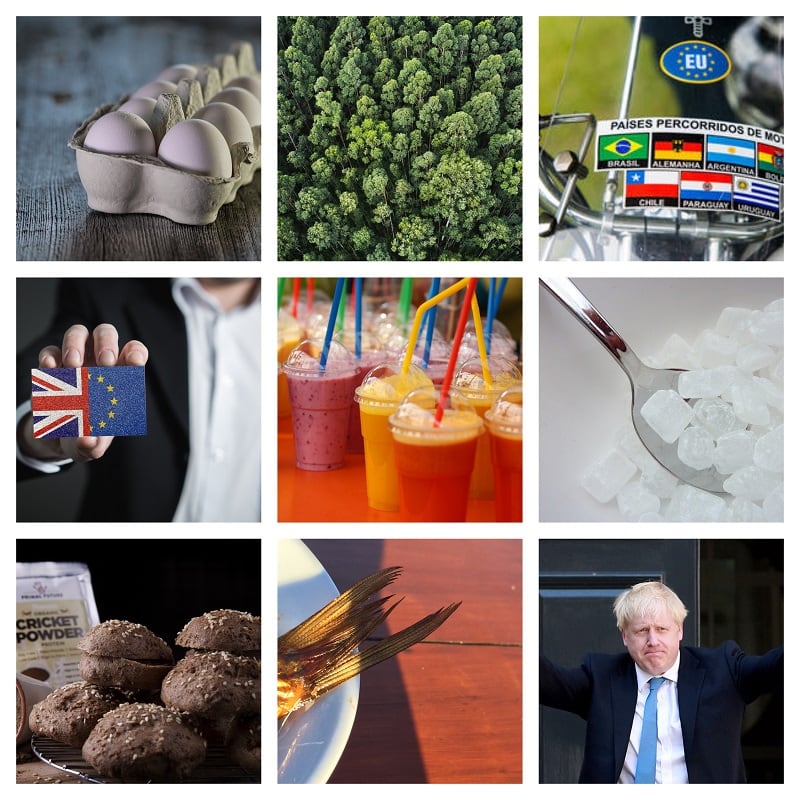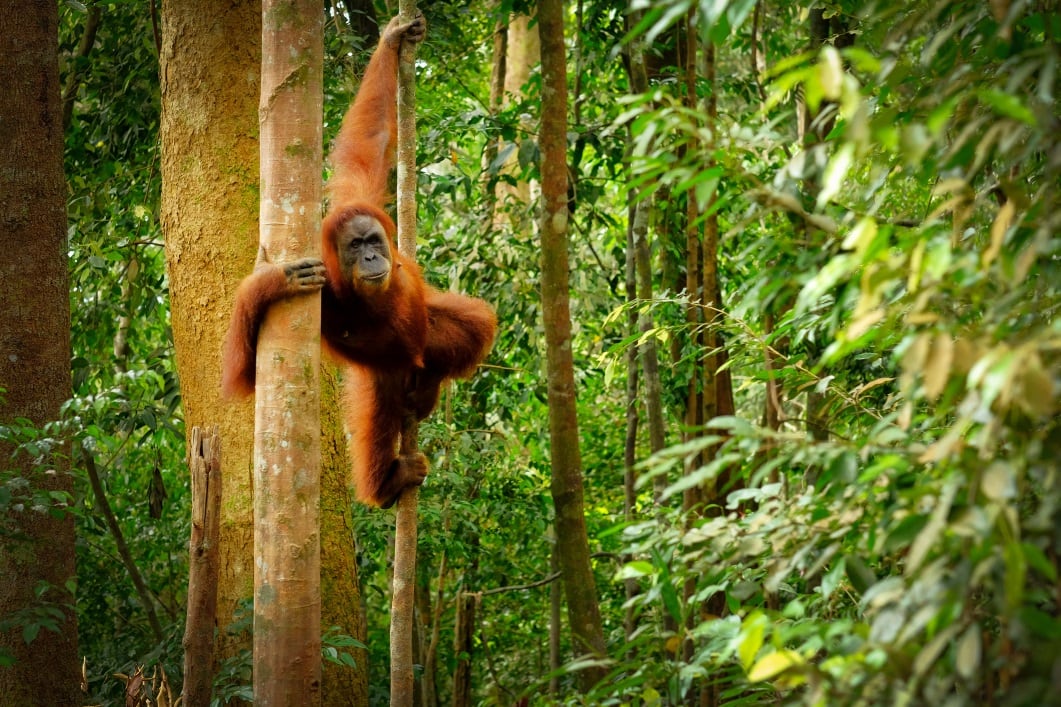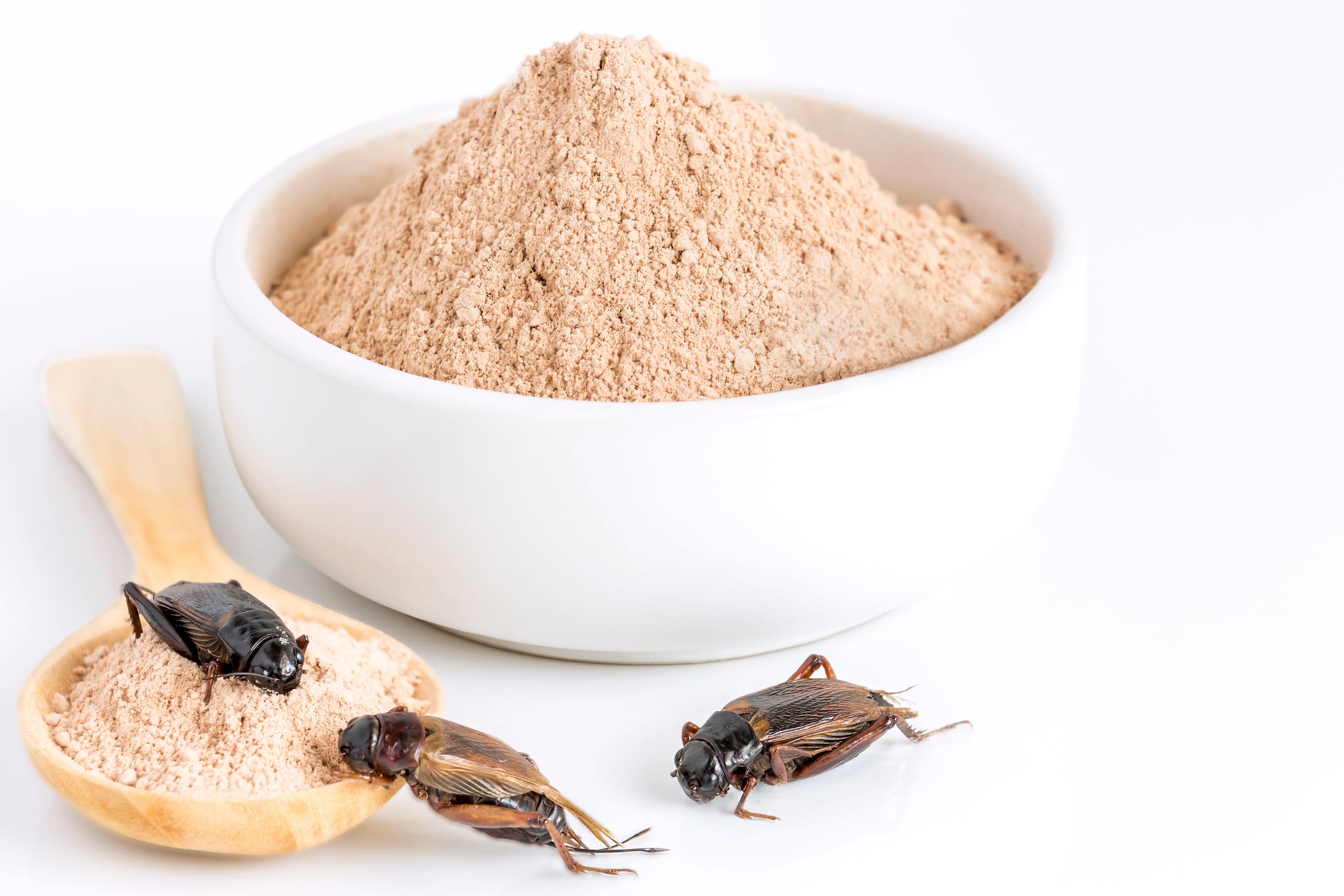Strict rules needed on chemicals in paper food packaging: BEUC
The EU needs rules on chemicals in coffee cups, straws and other paper food packaging, according to the European Consumer Organisation.
A new lab test from the group shows that food packaging made of coloured paper and cardboard - such as coffee cups and straws - may contain and release chemicals originating from the inks used for printing. Paper is the second most used food packaging material after plastic. Unlike plastics, however, there are no EU rules governing paper’s use as a food contact material.
The results show the need for EU-wide laws regulating the use and safety of all paper and board food packaging, said the group. With single-use plastics set to be banned in the EU as of 2021, the test raised safety concerns over some alternatives like paper straws.
The tests on 76 samples of printed paper or board food packaging, such as coffee cups, paper straws, printed napkins and grocery products showed that:
More than one in six samples contained primary aromatic amines, some of which are suspected to cause cancer. Nine samples contained these chemicals above the limit set in the EU Plastic Regulation.
Almost all 76 samples contained UV filters. Some UV filters are suspected to cause cancer or disrupt the hormone system. Further analysis of 21 samples showed that UV filters migrate into food above the recommended levels2 in six products, including a children’s box of raisins.
The safety of most of the substances found to migrate into food has not been evaluated by the EU food safety watchdog, EFSA.
Monique Goyens, Director General of BEUC, said: “Most consumers naturally assume that the material in direct contact with their food is free of harmful chemicals, but that is sadly not the case. Chemicals in packaging that leak into our food ultimately enter our bodies, but they have no place there. This new test adds to the growing evidence by consumer groups across Europe that paper food packaging may not be as innocent as it seems. To protect consumers’ health, the EU needs to develop strict rules that are more than a paper tiger.
“It is worrying that paper, which is the second most used food packaging after plastic, is used in contact with our food without a safety net. With the ambitious ban on single-use plastic around the corner, the EU must ensure that alternatives such as paper and board food packaging are safe for consumers.”
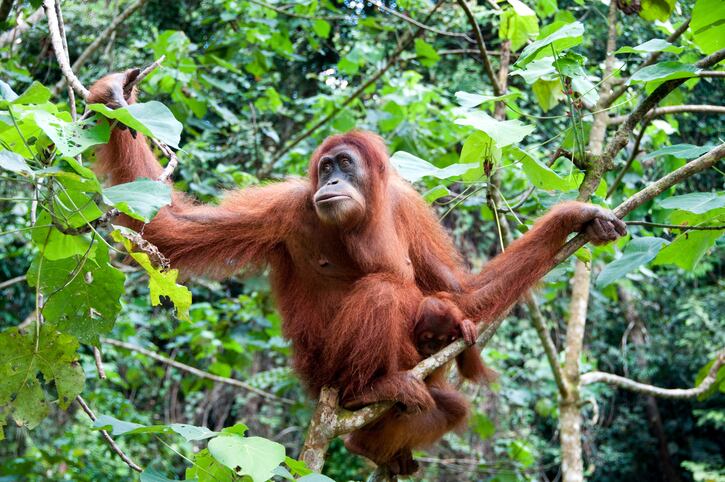
EC steps up commitments on deforestation
The European Commission has set out its stall with commitments to end global deforestation related to EU imports of agricultural commodities.
The EC outlined five priorities with a ‘comprehensive’ set of actions. These included commitments to:
- Reduce the EU’s consumption footprint and encourage the switch to deforestation-free supply chains;
- Partner with producing countries to reduce pressures on forests and ‘deforest-proof’ development cooperation;
- Strengthen international cooperation to halt deforestation and forest degradation, and encourage re-foresting efforts;
- Redirect finance to support more sustainable land-use practices;
- Support the availability of, quality of, and access to information on forests and commodity supply chains, and support research and innovation.
Vice-President Jyrki Katainen, responsible for jobs, growth, investment and competitiveness, said that the communication signals Europe is ‘stepping up’ to address the challenge of deforestation.
“We are stepping up EU action to protect existing forests better and manage forests sustainably. When we protect existing forests and increase forest cover sustainably, we safeguard livelihoods and increase the income of local communities. Forests also represent a promising green economic sector, with the potential to create between 10 and 16 million decent jobs worldwide,” he said.
The Commission’s proposals include the exploration of further regulatory measures on imported deforestation, the establishment of a new multi-stakeholder platform on deforestation and forest degradation and a focus on partnering with producer countries to scale up improved land governance.
NGOs roundly applauded the spirit of the announcement, but said comprehensive action was still needed. Han de Groot, CEO of the Rainforest Alliance, said: “The EU must energize and empower its constituents to translate these commitments into concrete action.”
Henriette Walz, deforestation lead for the Rainforest Alliance, added: “The EU correctly identifies changing agricultural consumption patterns and partnering with producing countries to improve forest governance as tackling the root caused to deforestation. Both transparency on voluntary no-deforestation commitments and exploring regulatory measures are key steps to driving out deforestation from the EU imports by 2030.”
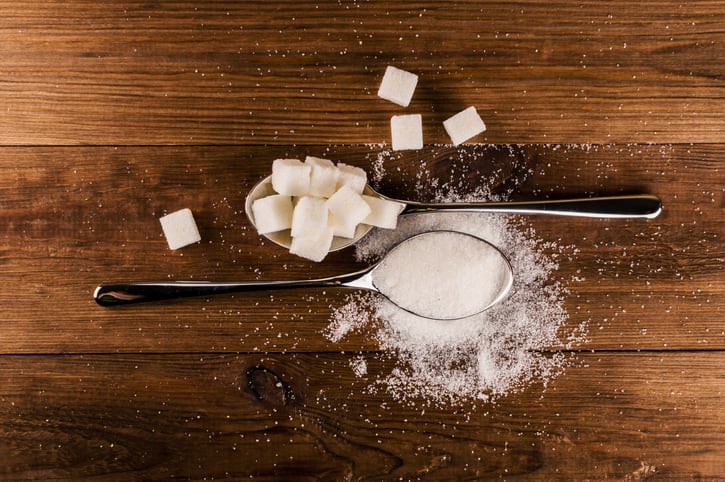
EFSA rebuffs aspartame accusations
The European Food Safety Authority (EFSA) has rejected calls for artificial sweetener aspartame safety to be reviewed.
According to UK academics at the University of Sussex, the safety of aspartame for human consumption has not been ‘adequately proven’.
Currently, in Europe aspartame is authorised to be used as a food additive in foodstuffs such as drinks, desserts, sweets, dairy, chewing gums, energy-reducing and weight control products and as a table-top sweetener.
In 2013 the EFSA concluded that aspartame and its breakdown products are ‘safe for [the] general population’, including infants, children and pregnant women. At the time, EFSA ruled out potential association between aspartame consumption and brain damage or cancer.
But a study from Professor Erik Millstone and Dr Elisabeth Dawson detailed what they describe as ‘serious flaws’ in EFSA’s 2013 safety assessment of the artificial sweetener.
However, the EFSA rejected suggestions that its evaluation of aspartame failed to consider all the evidence fairly and insisted its conclusions were the result of intensive scrutiny.
“EFSA’s opinion represents one of the most comprehensive risk assessments of aspartame ever undertaken. After a review of all available scientific data and consumption information, EFSA concluded that aspartame and its breakdown products are safe for human consumption at current levels of exposure," a spokesperson said.
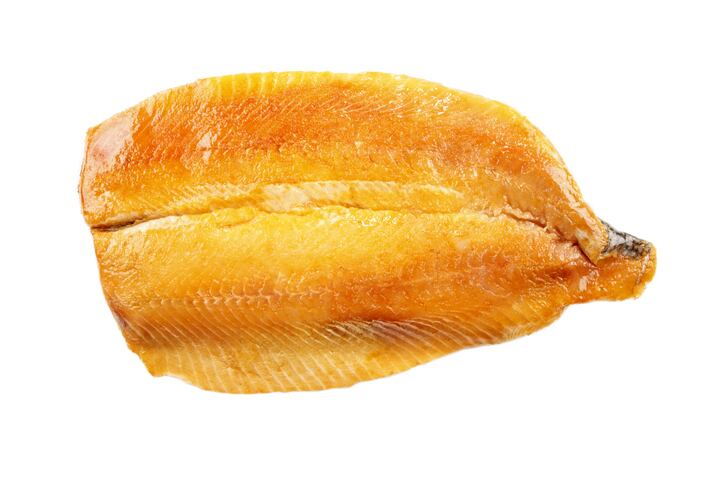
UK PM Boris Johnson in ‘fake news’ row over European kipper rules
The UK’s new prime minister, Boris Johnson, became embroiled in a row after he told a campaign rally that rules about kippers demonstrated why the UK was right to want to leave the EU.
Johnson, holding aloft a vacuum-packed kipper to show the audience, said: “If you want to understand why it is that we must leave the EU and the advantages of coming out, I want you to consider this kipper which has been presented to me just now by the editor of a national newspaper who received it from a kipper smoker in the Isle of Man who is utterly furious because after decades of sending kippers like this through the post, he has had his costs massively increased by Brussels bureaucrats who insist that each kipper must be accompanied by this, a plastic ice pillow.”
“Pointless, expensive, environmentally damaging health and safety, ladies and gentlemen. When we come out therefore, we will not only be able to end this damaging regulatory overkill, but we will also be able to do things to boost Britain’s economy and we will be able to establish an identity as a truly global Britain and get our mojo back.”
However, the rules requiring kipper producers to pack their fish with an ‘ice pillow’ are British, not EU ones, enforced because they lower the risk of Listeria in smoked products.
Anca Paduraru, a European Commission food safety spokesperson, told a Brussels press conference: “The case described by Mr Johnson falls outside the scope of EU legislation and is purely a UK national competence.”
Paduraru explained there were strict EU rules on temperature controls for fresh fish, but these did not apply to processed fish products.
“Our main priority is the health of our citizens as well as safeguarding the standards in terms of public health and food safety, which are the highest in the world,” she added.
“When it comes to the specific case mentioned, while the food business operator has an obligation to meet the microbiological requirements – the safety requirements – to ensure the safety of its food, however the sale of products from the food business operator to the final consumer is not covered by EU legislation on food hygiene.”
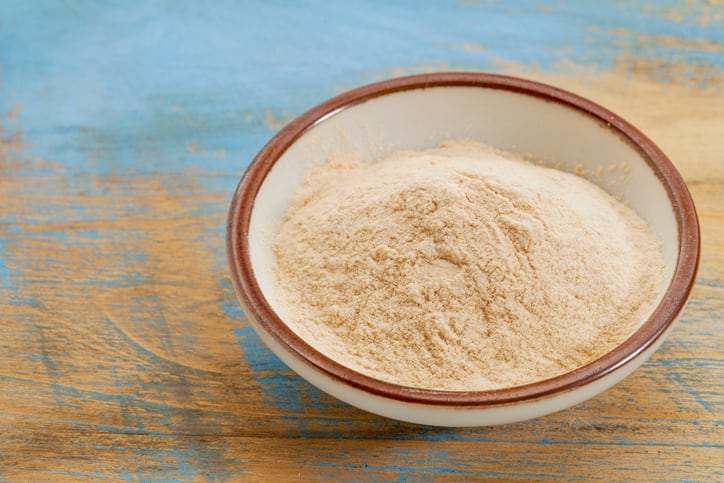
European insect sector publishes guidelines for labelling edible insects
The International Platform of Insects for Food and Feed (IPIFF) has released guidance providing recommendations towards best labelling practices for insects and insect-based products and ingredients in the EU.
IPIFF expects the European Commission to authorise a number of novel food applications in the “near future” and eliminate the barriers for the EU trade of edible insect-based products. It hopes its labelling guidelines its “will prove to be beneficial for actors active on Member State level, but also for FBOs who aim at selling their products in the Single Market.” The recommendations focus on labelling requirements, health and nutrition claims, standards on the labelling of allergens, origin, as well as the responsibilities of operators along the food chain.
Built around the framework of existing regulation (Regulation (EU) 1169/2011 and Regulation (EU) 2015/2283), the publication aims at assisting prospective and active Food Business Operators (FBOs) in the production of insect-based food in order to comply with the relevant labelling provisions.
IPIFF is a non-profit organisation which represents the interests of the insect production sector towards EU policymakers, European stakeholders and citizens. Composed of 52 members, most of which are European insect producing companies, IPIFF promotes the use of insects and insect-derived products as top tier source of nutrients for human consumption and animal feed.
“Despite the young age of our sector, we wish to demonstrate that we act responsibly, adapting our activities to the dynamic EU legislative framework,” said Antoine Hubert, IPIFF’s president.
France refuses to ratify provisional EU-Mercosur trade deal
France’s Agriculture Minister has said Emmanuel Macron’s government would not approve the EU-Mercosur trade deal “in its current form”.
“A number of things still need to be considered,” Didier Guillaume told the French television channel CNews, adding that an “independent commission” charged with assessing the pros and cons of the landmark accord would soon share its conclusions. But “the question will not arise for another two or three years – we don’t know,” Guillaume said.
Guillaume’s comments increase speculation about whether the deal will ever see the light of day. The deal between the EU and four South American countries was agreed last month after 20 years of trade discussion.
However, member states still have to ratify the agreement before its implementation as well as the European Parliament, and in some cases the national parliaments in different capitals.
The trade deal has raised concern in some countries with strong agricultural sectors, such as France and Ireland where there are worries about the surge in beef imports that could come from South America.
The Irish Farmer’s Association said that the deal with Mercosur “would have a severe impact on Irish and European farmers, who are already struggling from the impact of Brexit and falling consumption levels.”
“Ratification in Europe is likely to be far from straightforward,” analysts at research firm Teneo Intelligence said in a note earlier this month. “The risk of a failed vote would be significant,” they added.
Bosnia and Herzegovina cleared to supply egg products to the EU
The European Commission's Standing Committee on Plants, Animals, Food and Feed has given Bosnia and Herzegovina (Bih) the green light to export processed eggs to the EU member states.
The deal means composite products such as pasta and pastry from the eastern European country can be freely exported to the EU.
Mirko Sarovic, BiH's minister of foreign trade and economic said: "This is a significant success as the eggs will increase the competitiveness of the fowl sector and the overall production, not only regarding eggs but also the entire food industry."
The country plans to submit a request later this year for a license to export raw eggs.


